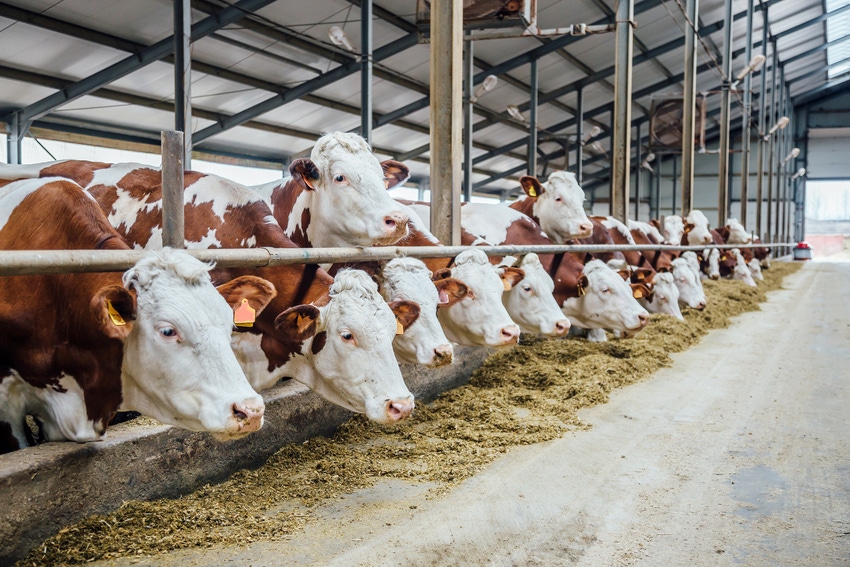Heritable subset of core rumen microbiome dictates dairy cow productivity and emissions, according to new research.
July 3, 2019

Common dairy cows share the same core group of genetically inherited gut microbes, which influence factors such as how much methane the animals release during digestion and how efficiently they produce milk, according to a new study reported in Science Advances, published by the American Association for the Advancement of Science (AAAS).
By identifying these microbes, the research may enable scientists to manipulate the rumen, facilitating a transition towards more eco-friendly and productive agriculture. Scientists have long wondered about the connection among a cow's genetics, its productivity and the composition of its microbiome.
To begin to uncover answers, emeritus professor R. John Wallace with The Rowett Institute at the University of Aberdeen in the U.K. and his international collaborators used common nucleotide variations among genes to study the genotypes of an "unprecedented" 1,000 Holstein and Nordic Red dairy cows — the most popular and productive milking cow breeds in developed countries — from the U.K., Italy, Sweden and Finland, AAAS said.
The researchers identified a core microbiome: a selection of closely related microbes present in at least 50% of all tested cattle. The researchers then used two machine learning algorithms to determine that they could accurately predict rumen metabolism, diet and traits such as milk output and methane emissions based on this core microbiome's composition, the announcement said.
A canonical correlation analysis showed that the core microbiome was correlated with genetics, suggesting that inherited genes gave rise to microbes responsible for methane emissions and other cattle traits. The finding that these influential microbes are linked to heritable genes could lead to programs in which breeders select for cattle with microbiomes that produce the least methane, the researchers said.
Besides The Rowett Institute, other institutions involved in the project include Ben-Gurion University of the Negev in Israel, University of Nottingham in the U.K., Natural Resources Institute Finland (Luke), Università Cattolica del Sacro Cuore in Italy, Swedish University of Agricultural Sciences in Sweden, Parco Tecnologico Padano in Italy, Institute of Animal Physiology & Genetics in the Czech Republic, Domaine Universitaire de St. Martin d'Hères in France and the University of California-Los Angeles in the U.S.
You May Also Like


.png?width=300&auto=webp&quality=80&disable=upscale)
